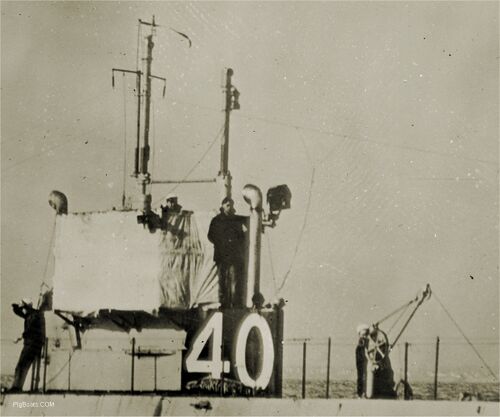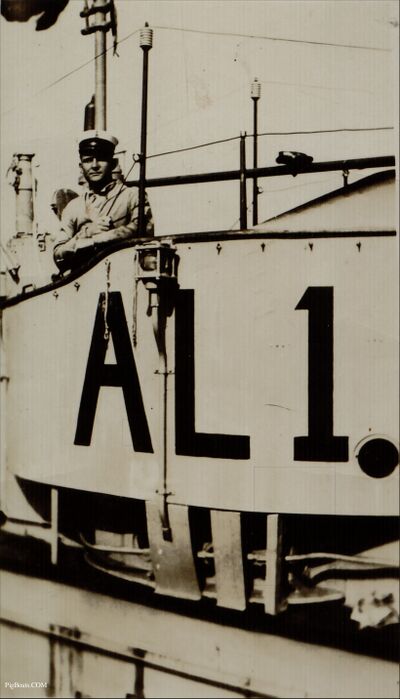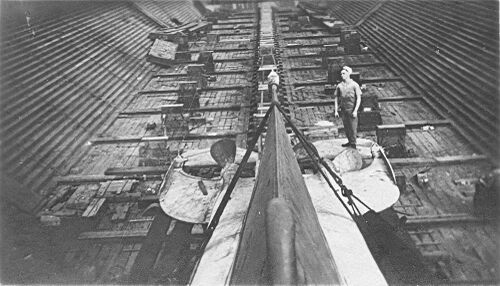L-1

Library of Congress Collection

Photo from the private collection of Ric Hedman.

There are a number of interesting things going on in this photo. On the right, just above the bow, there is a grouping of three people, two of which are Navy sailors in their blue uniforms. It is unknown if they belong to the L-1. There is a Great Northern freight car sitting at the pier head. Just forward of the conning tower is another group of people two of which are sailors belonging to the submarine. They are in their working uniforms. The 3"/23 caliber deck gun is in its raised position and turned with its barrel pointing aft, this is to get it out of the way of the gangplank to the quayside.
Seen on the buildings in the background are a number of business signs. At the right, second building from the right, the sign say either "Mr Bell" or "Dr Bell". The last word can not be read. The fourth building, written between the second and third floor windows, it says "Geo T Williams Jr Store" This is preceded by three smaller words that can not be made out.
The building on the corner of the intersection has a large free standing sign with the possibly of electric lighting on its roof. It has a large image of a flying American Flag and under this are the words. "Hotel & Cafe", possibly meaning it is the "American" Hotel & Cafe or the "Flag" Hotel & Cafe. If there are any Baltimore historians out there they can maybe fill some of these details.
On the street there is an interesting mix of automobiles and horse drawn wagons. In the center of the street, there is what appears to be a freight wagon full of tied bags. Parked next the curb is another freight wagon that looks to be attached to a caisson that in-turn seems to be attached to another part that seems to have a driver's seat and tongue for horses to be hitched to. A Model T Roadster is parked on the camera side of the horse drawn freight wagon. Seen just above this freight wagon there is a passenger wagon drawn by a single white horse. This may be a private "Family Car" or maybe a "Taxi". Parked in front of the Hotel is a Model T Sedan.
There are a variety of people around the submarine, but it doesn't seem to be drawing a crowd. This may mean that the sub has been moored to this location for a while and the novelty is wearing off.
Photo from the private collection of Ric Hedman.

L-1 is shown in port on the U.S. east coast, circa 1919. The Navy has yet to remove the letter "A" from her fairwater, but this would be done soon now that the boats had returned from WW I duty in Europe. A Chief Petty Officer looks on from the bridge. Below him between the A and the L is the starboard side running light. Mounted to his right are two thin masts with a ceramic insulator on the top, used to hold up radio aerial wires. One of the periscopes is directly behind the Chief.
Photo from the private collection of Ric Hedman.

Photo from the private collection of Ric Hedman.
Page created by:
Ric Hedman & David Johnston
1999 - 2023 - PigBoats.COM©
Mountlake Terrace, WA, Norfolk, VA
webmaster at pigboats dot com
